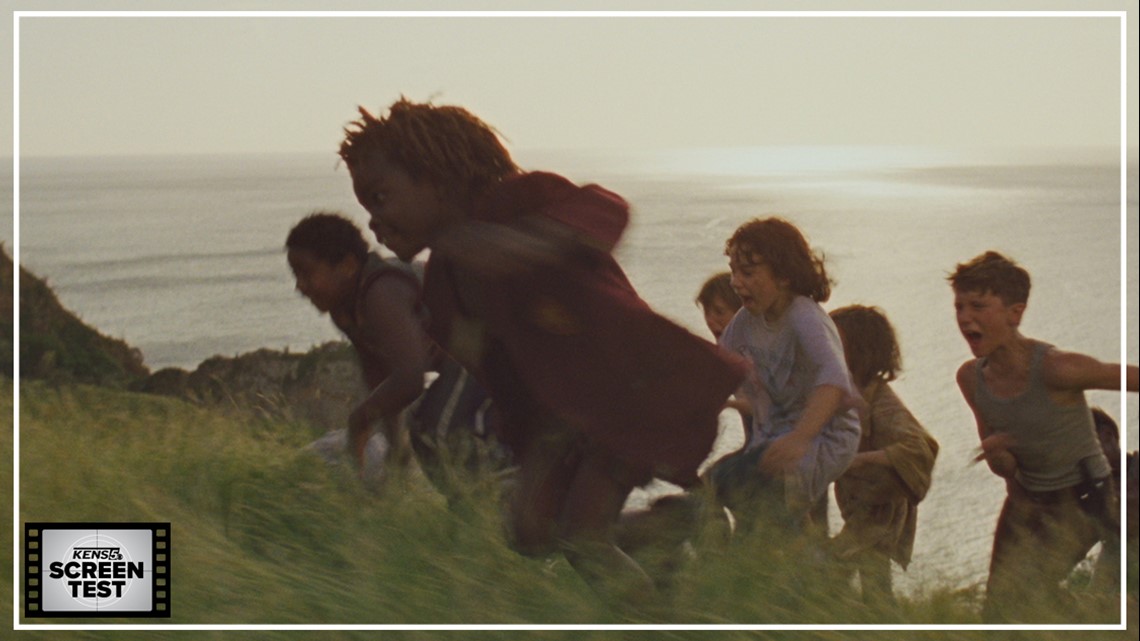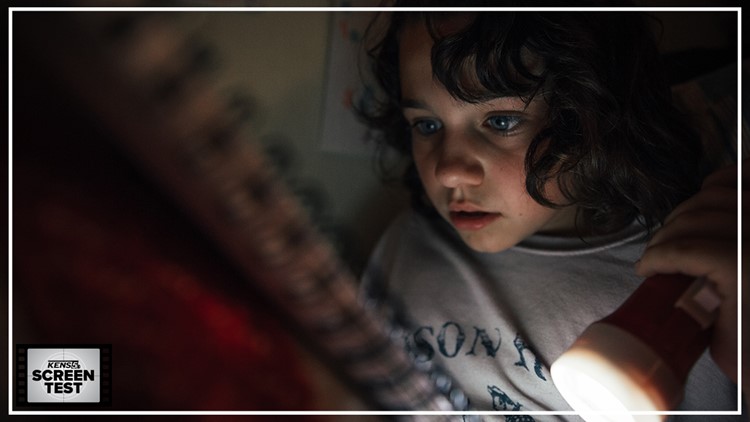“Wendy,” from writer-director Benh Zeitlin, opts for superlative over substance in telling an underwhelming tale about lost boys and girls frolicking about a paradise island suspended in youthful stasis, where childhood is eternal and grown-up agendas are made villainous. The tropes should sound familiar—it’s not just Zeitlin’s point, but the only semblance of a saving grace.
As much as “Wendy” has all the pieces to be a stripped-down echo of the “Peter Pan” tale, this is more re-interpretation than origin story. The film – bursting with atmosphere and little else – shows Zeitlin applying the same rough-around-the-edges style of filmmaking he introduced in his Best Picture-nominated “Beasts of the Southern Wild” so as to make his first two features feel like the first installments of a contemplative trilogy.
As with Hushpuppy in “Beasts,” “Wendy” follows a young girl living in the economic gutter, although Devin France’s titular adventure-seeker – the actress’s first ever role – at least lives under a roof that doesn’t leak. Familiar themes of dreams aborted and dreams jump-started begin to sprout; we learn that Wendy’s affable mother raises her and her two brothers alone while running the small diner nestled in the home’s first floor, but she had loftier aspirations once upon a time. You don’t get the sense she regrets the direction her life has taken, but she does reminisce about the road not traveled.
Wendy, despite her inexperience, does as well. When she’s awoken by a mysterious “haunted train” chugging along the tracks outside her window, she leaps onto it without hesitation, unsure of where it’s going nor of the identity of the mysterious child already astride it. The cinematography of Sturla Brandth Grøvlen would feel tensely claustrophobic in this sequence – there are tight close-ups of faces and of the steam hissing from the train’s snout – if it didn’t suggest an honest, limited worldview of our wanderlust-caught protagonists.
Eventually, after transferring from train to boat, they arrive at an island lorded over by a massive volcano, inhabited by tattered preteen denizens (led by a young ragamuffin named Peter) and shot with unbridled optimism by Grøvlen. Wendy, her brothers Douglas and James (played by real-life siblings Gage and Gavin Naquin), Yashua Mack’s Peter and the rest of their cadre have no one to answer to but themselves in this paradise; once Wendy finds out a boy she had known as an infant before he had gone missing was on this island all along without aging a day, she realizes how limitless life here can be.
The curious, intimate notes of Dan Romer’s score and the documentary-style editing from Scott Cummings and Affonso Gonçalves accompany the gang’s exuberant running, screaming and swimming—and a twinkle that never leaves France’s eye emphasizes Wendy’s liberation. For someone with no acting experience, she brings wonder and gravitas to the role. At least, it’s enough to the point where hoping that her equally-as-young screen partners can replicate the same caliber of performance is a big ask.
What these scenes sorely miss, however, is any sense of character motivation. What leads Wendy to initially jump onto that midnight train and travel to Zeitlin’s version of Neverland? What does she hope to find? What has happened in her life to make her seek something she won’t expect until she even gets there? The screenplay – which Zeitlin he co-wrote with his sister, Eliza – doesn’t consider these questions all that important. And I can imagine a version of “Wendy” (one that occasionally surfaces here) in which the inquiries don’t matter much, in which the movie fully molds itself to its lightly-cosmic touches and the Terrence Malick-lite voiceover of a Wendy who sees wisdom in youthful stature.
But Zeitlin’s movie is too scrappy for that, too proud of coming across like a product of DIY filmmaking to justify ignoring the mystery of what Wendy is trying to run away from. It’s an exceptionally acute melancholy the 37-year-old director is aiming for, and I think it would have benefited him to balance out the tone of his film with a more complex emotional journey for Wendy to sustain it.
That comes especially true when a narrative and an antagonist starts to poke through. Wendy soon comes to find her young cohorts aren’t the only inhabitants of this paradise…and there’s a price to pay for those who have – per the age-old story “Wendy” is based on – lost faith in the potential of imagination. Quite literally, the island’s organic life source is at stake.


The Zeitlins’ screenplay isn’t so confident in the milieu of its themes in the movie’s second half, when “Wendy” exchanges a fascination of physical and spiritual nature for claptrap adventure vaguely mimicking a nuts-and-bolts version of “Peter Pan” while being completely incomprehensible in its logic. (You’d think logic shouldn’t apply in this world, but, without spoiling too much, the story’s emotional climax relies on duping the audience into thinking that a large amount of time has passed, despite it being impossible to buy in.)
Yes: “Wendy” has its own iteration of a Captain Hook and a sea-faring ship, but the film’s scant creative reinvention is undone by an insistence to keep both feet planted firmly on the ground (something the movie practically acknowledges when its characters try to take up flight). There are some welcome scenes of surrealism in “Wendy” that suggest Zeitlin as the next great director in the realm of impressionism, but these bits of the movie are often made moot by its more rustic elements, not to mention an overlong ending that strangely ignores showing a key reunion scene that most viewers may find themselves anticipating.
Many years separated Zeitlin’s first two features, and I hope we don’t have to wait as long for his third. I also hope he realizes the power his images can have when he imbues them with meaning that lingers long after the visual aesthetics have faded from the screen, when he – like Wendy – dares to dream.
"Wendy" is rated PG-13 for brief violent/bloody images
Starring: Devin France, Yashua Mack, Gage Naquin, Gavin Naquin
Directed by Benh Zeitlin
2020
OTHER SCREEN TEST REVIEWS:
- 'Onward' Review: Pixar's family fantasy is satisfying, standard fare from the animation giant
- 'Greed' Review: Steve Coogan is the cartoonish face of the ultrarich in familiar satire
- 'The Invisible Man' Review: Unseen horrors in the #MeToo era
- 'The Call of the Wild' Review: A very gruff Harrison Ford and a very not-real dog find adventure in sanitized survival story
- 'The Assistant' Review: A biting look at abuse of power and a workplace looking the other way
- 'Sonic the Hedgehog' Review: Sega speedster's live-action introduction, sans human teeth, has its moments



